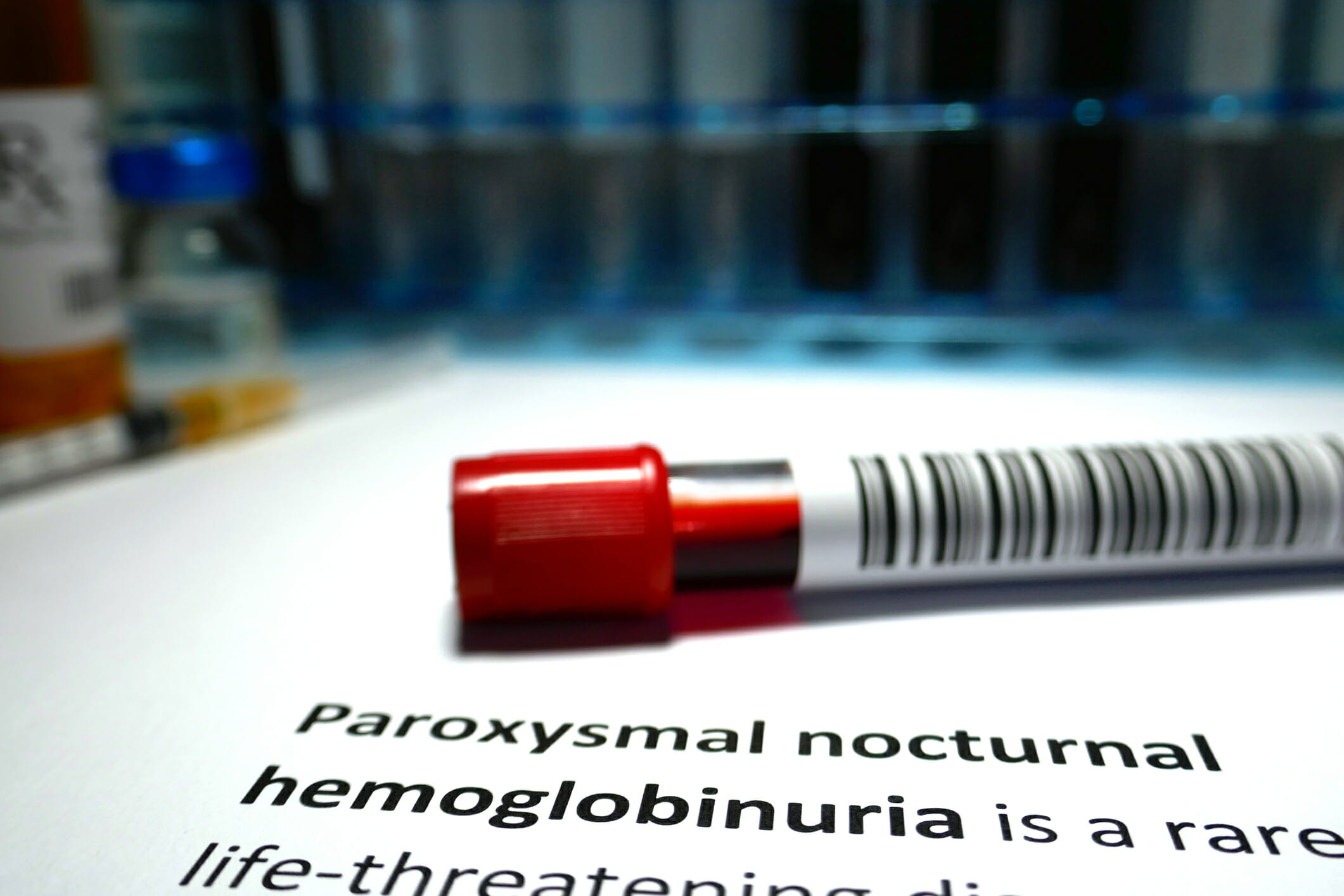Paroxysmal Nocturnal Hemoglobinuria (PNH) is an intriguing and complex blood disorder that affects the red blood cells, leading to a variety of symptoms and complications. This quiz will test your knowledge on the intricacies of PNH, from its clinical presentation to the latest advancements in treatment. Ready to challenge yourself and expand your understanding of this rare condition? Let‘s get started!
We recommend that you do not leave the page that you are taking this quiz in. Stay honest 🙂
Paroxysmal Nocturnal Hemoglobinuria Quiz Questions Overview
1. What is the primary cause of Paroxysmal Nocturnal Hemoglobinuria (PNH)?
A mutation in the PIGA gene
A mutation in the HBB gene
A mutation in the BRCA1 gene
A mutation in the CFTR gene
2. Which of the following is a common symptom of PNH?
Night sweats
Hemoglobinuria
Joint pain
Skin rash
3. Which diagnostic test is most commonly used to confirm PNH?
Bone marrow biopsy
Flow cytometry
MRI scan
CT scan
4. What is the role of eculizumab in the treatment of PNH?
It is an anticoagulant
It is an iron supplement
It inhibits complement activation
It stimulates red blood cell production
5. Which organ is most commonly affected by thrombosis in PNH patients?
Liver
Heart
Kidneys
Lungs
6. What is the typical age range for the onset of PNH symptoms?
Childhood
Adolescence
Early adulthood
Late adulthood
7. Which of the following is a potential complication of PNH?
Chronic obstructive pulmonary disease (COPD)
Aplastic anemia
Osteoporosis
8. How does PNH typically affect red blood cells?
Increases their production
Causes their premature destruction
Alters their shape
Decreases their oxygen-carrying capacity
9. Which of the following is a treatment option for severe cases of PNH?
Bone marrow transplant
Antibiotics
Chemotherapy
Insulin therapy
10. What is the function of GPI-anchored proteins in red blood cells?
Transport oxygen
Provide structural support
Protect cells from immune attack
Facilitate cell division
We recommend that you do not leave the page that you are taking this quiz in. Stay honest 🙂
Can Your Friends Do Better Than You in This Quiz?
Share this quiz with your friends and compare results.
Was this page helpful?
More Popular Health & Wellness Quizzes:
-
Bipolar or ADHD Quiz
-
Sepsis Quiz
-
Medical Terminology Quiz
-
Body Regions Quiz
-
Puberty Quiz
-
Sexual Harassment Quiz











